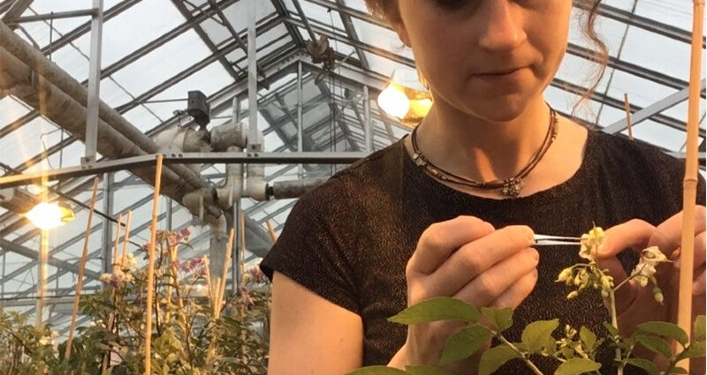Potato farmers face many challenges. One tiny, yet devastating, pest is the Colorado potato beetle. It can cause immense damage to potato crops. It’s also notorious for becoming resistant to chemical insecticides. In a new study, published in Crop Science, researchers at Michigan State University (MSU) describe genetic tools to develop potato varieties with improved natural resistance to the potato bug, according to an article by Adityarup, American Society of Agronomy.
They also developed key genetic resources—called recombinant inbred lines—that will aid in breeding new potato varieties.
The Colorado potato beetle can devastate potato production. But some wild relatives of the domesticated potatoes have natural defenses against these beetles. These wild plants make their own beetle-killing compounds.
“Some of these compounds can kill Colorado potato beetle larvae,” said Natalie Kaiser, a researcher at Michigan State University and lead author of the study. “These compounds also dramatically reduce adult beetle feeding.”
But consuming large amounts of these compounds can have adverse health effects in humans. While beetles chomp on potato leaves, humans obviously do not. “So, it is desirable to create potato varieties that make these anti-beetle compounds only in their leaves,” says Kaiser.
The new potato varieties and genetic tools developed will allow researchers to “examine the genetic foundations of self-fertility, and insect and disease resistance,” according to Kaiser. “This way, we can create new potato varieties that were previously infeasible,” she says.
Researchers at Michigan State University are extending this research in field trials this summer.
Source: Phys.org. Read the full article here
Photo: Study author Natalie Kaiser crossbreeding potatoes that have strong Colorado potato beetle resistance to potatoes with good tuber production in the greenhouse. She is using small forceps to select the male part of the flower, the anthers. Credit: Natalie Kaiser





